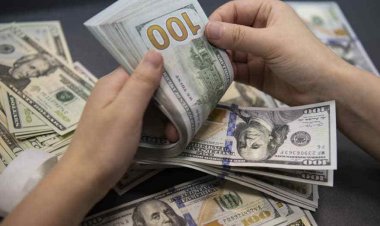How to protect your money from floatation risks?

Many citizens around the world are looking for strategies to protect their money from the partial or complete floating of their national currencies, especially in light of the escalation of global economic and geopolitical tensions.
In this regard, economic expert Dr. Ahmed Rashad said, in press statements, that the investment portfolio must be diversified to reduce the impact and risks of flotation, pointing out the possibility of distributing funds across a variety of assets such as stocks, real estate, bonds, and primary commodities. By diversifying the portfolio, the performance of certain assets may be offset by the performance of other assets under inflationary conditions.
Gold is a safe haven
The economist continued that gold is considered a safe haven for both large and small investors during periods of inflation, and when the strength of the paper currency declines, people tend to invest in precious metals to protect the value of their money.
He pointed out that real estate is an asset that can resist inflation. When the price level rises in general, the value of real estate usually increases. In addition, investing in real estate can provide sustainable income for individuals through rentals.

Hedge funds
The economist continued: “Hedge funds are investment tools used to protect against fluctuations in financial markets. These funds aim to achieve returns in the long term regardless of short-term market changes, and investing part of your money in hedge funds may be a good strategy to ensure value preservation.” During periods of inflation.
He explained that it is possible to invest in securities with fixed returns: These securities include government bonds and corporate bonds. These instruments are considered relatively investment-grade, and a fixed interest is paid on the investment over a specific period. Government bonds with fixed returns are considered less risky than corporate bonds, but in either case it can provide protection from inflation by generating a fixed return that exceeds the inflation rate.
Rashad advises getting rid of debts when inflation rates rise and the trend is towards floating the currency. He said when the inflation rate rises, the interest rate required to be paid on the debts owed may increase, and therefore, it is better to work on reducing debts and paying them off as quickly as possible, especially with the possibility of floating.
Foreign assets
The economist explained that money can be invested in foreign currencies to protect them from inflation. When the strength of the local currency is undermined, the value of foreign currencies may increase.
He added that it is possible to invest in major currencies such as the US dollar, the euro, the British pound, or the Japanese yen, for example, explaining that what is meant by floating is leaving the currency exchange rate to the forces of supply and demand without interference from central banks.

Real estate investment funds
The economist pointed out that real estate investment funds provide investors with an opportunity to invest in real estate without having to buy individual properties, so they are a good way to invest.
Rashad continued: These funds can provide protection against the risks of flotation through high dividend distributions and an increase in the value of owned real estate.
He stated that any investment involves financial risks and requires careful study and evaluation of economic conditions and local and global financial markets.


 Shrouq
Shrouq 












